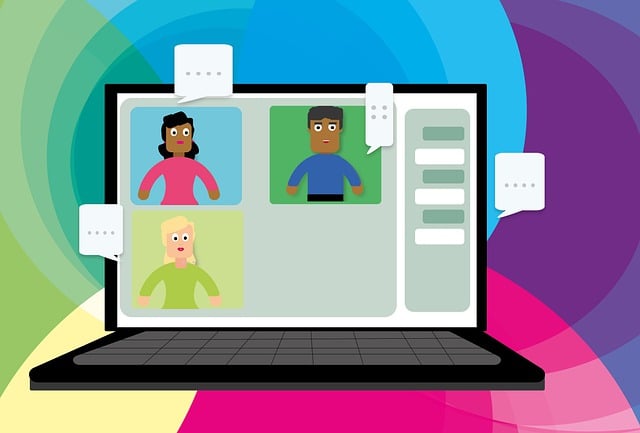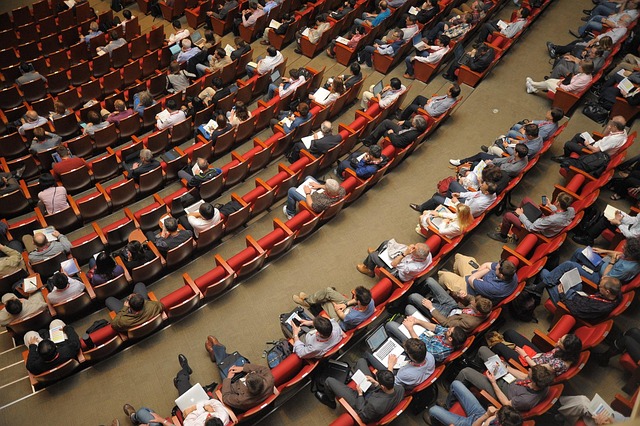Boosting UK Research Visibility: Translating Conference Abstracts Globally
Translation services play a pivotal role in promoting and amplifying UK scientific research globally by overcoming language barriers. They ensure that conference abstracts from the UK reach a broader, international audience through accurate and cultu…….

Translation services play a pivotal role in promoting and amplifying UK scientific research globally by overcoming language barriers. They ensure that conference abstracts from the UK reach a broader, international audience through accurate and culturally sensitive translations. This facilitates knowledge exchange, collaboration, and inclusivity among researchers worldwide, fostering a vibrant global scientific community. With technological advancements like AI, these services are becoming more efficient, cost-effective, and specialized, catering to the growing demand for high-quality abstract translations in today's interconnected academic landscape.
In the global scientific landscape, ensuring maximum visibility for research is paramount. For conference abstracts from the UK, language barriers often act as insuperable hurdles, limiting their reach and impact internationally. This article explores the critical need to translate UK scientific conference abstracts, delving into the challenges, benefits, current trends, and future prospects of this essential service. Discover how professional translation services can enhance accessibility, boost research outcomes, and propel UK contributions within the global academic community.
- Understanding the Challenge: Barriers to Global Visibility for UK Conference Abstracts
- The Role of Language in Scientific Research Communication
- Why Translation Matters: Enhancing Impact and Accessibility
- Exploring Current Trends in Academic Translation Services
- Benefits of Professional Translation for UK Researchers
- Strategies for Effective Abstract Localization
- Choosing the Right Translation Provider for Your Conference
- Quality Assurance Processes in Scientific Translation
- Case Studies: Successful Translations that Changed Research Outcomes
- Future Prospects: AI and its Impact on Academic Abstract Translation
Understanding the Challenge: Barriers to Global Visibility for UK Conference Abstracts

In the global scientific community, conference abstracts play a pivotal role in sharing research findings and fostering collaboration. However, for those presented in languages other than English, achieving visibility can be challenging. This is particularly true for UK-based conference abstracts, which often face barriers to reaching an international audience due to language differences.
Translation services are crucial in overcoming these hurdles and ensuring that valuable UK scientific insights gain global recognition. Accurate and culturally sensitive translation of conference abstracts not only enhances accessibility but also promotes the exchange of knowledge across borders. By making abstracts available in multiple languages, researchers from diverse backgrounds can contribute to a more inclusive and interconnected scientific community, fostering innovation and collaboration on an international scale.
The Role of Language in Scientific Research Communication

In today’s global scientific landscape, effective communication is key to advancing research and fostering collaboration. Language plays a pivotal role in this process, especially when it comes to sharing knowledge through conference abstracts. For researchers aiming to present their work in the UK, understanding the local linguistic context is essential. This is where translation services for UK scientific conference abstracts step in as game-changers.
Accurate and professional translation ensures that abstract content is not only conveyed but also understood by a diverse audience. It allows researchers from different linguistic backgrounds to navigate and contribute to the scientific discourse seamlessly. By bridging the language gap, these services enhance the visibility of research, enabling experts worldwide to discover and engage with UK-based studies. Effective communication, facilitated by translation, empowers scientists to share their findings, collaborate, and advance their fields on an international stage.
Why Translation Matters: Enhancing Impact and Accessibility

In today’s global scientific landscape, where research and knowledge exchange transcend borders, ensuring clear communication is paramount. This is especially true for UK scientific conference abstracts, which often attract an international audience. Translation services play a vital role in making these abstracts accessible to researchers worldwide, enhancing the overall impact of the conference.
By providing professional translation, abstract authors can reach a broader readership, fostering collaboration and innovation across different countries. This accessibility is crucial for the advancement of science, as it enables experts from diverse backgrounds to contribute, share findings, and build upon one another’s research. Effective translation services for UK scientific conference abstracts are therefore essential tools in promoting open dialogue and accelerating discoveries on a global scale.
Exploring Current Trends in Academic Translation Services

In today’s global academic landscape, the demand for high-quality translation services for scientific conference abstracts is on the rise, especially in countries like the UK where research and collaboration are thriving. This shift towards multilingual communication is driven by several current trends within the academic community. First, the UK’s diverse population includes a significant number of non-native English speakers, both among researchers and attendees at scientific conferences. This demographic reality underscores the need for precise and culturally sensitive translations to ensure accessibility and inclusivity.
Furthermore, with the UK hosting numerous international scientific gatherings and collaborations, there’s an increasing need for seamless translation services. These events attract participants from around the globe, each bringing their own linguistic backgrounds and expertise. Effective abstract translations not only facilitate knowledge exchange but also enhance networking opportunities by enabling researchers to connect and collaborate beyond language barriers. This trend is further fueled by advancements in technology, such as machine translation tools and AI-driven post-editing services, which streamline the translation process, making it more efficient and cost-effective for academic institutions and researchers alike.
Benefits of Professional Translation for UK Researchers

Professional translation services play a pivotal role in enhancing the visibility and impact of scientific conference abstracts, particularly among UK researchers. By employing native language experts, these services ensure that complex research ideas are accurately conveyed in multiple languages. This is crucial for UK academics aiming to reach an international audience, as it increases the potential for collaboration, knowledge exchange, and funding opportunities worldwide.
For UK researchers presenting at global conferences, high-quality translations are essential tools to bridge language barriers. Accurate abstracts in various languages attract a diverse range of readers, fostering inclusivity and enabling non-English speakers to access and contribute to cutting-edge research discussions. This, in turn, can lead to more collaborative projects, interdisciplinary work, and the advancement of scientific knowledge across borders.
Strategies for Effective Abstract Localization

When localizing conference abstracts for a UK audience, accuracy and cultural relevance are key. One effective strategy is to engage professional translation services specializing in scientific content. These experts can ensure that technical jargon is accurately translated while preserving the original meaning and intent. Using native English speakers with a background in science further enhances the quality of the localized abstracts.
Additionally, context-specific adaptation is crucial. This involves tailoring the abstract to resonate with UK audiences, reflecting their cultural nuances and academic preferences. Localizing not just words but also any references to global events or specific research contexts ensures that the abstracts are fully accessible and engaging for attendees from diverse backgrounds.
Choosing the Right Translation Provider for Your Conference

When it comes to translating conference abstracts for a UK audience, selecting the ideal translation provider is a strategic decision that can significantly impact your event’s success. With numerous options available, it’s essential to consider factors beyond cost. Look for providers with extensive experience in scientific and academic translation, ensuring they understand the nuances of your field. Expert translators who specialize in this domain will be well-versed in technical terminology and able to convey complex ideas accurately.
Reputation and quality assurance are key. Opt for a translation company with a proven track record and positive feedback from previous clients. They should employ rigorous quality control measures, including proofreading and editing processes, to guarantee error-free translations. This is particularly crucial when scientific accuracy is vital, ensuring your abstracts remain reliable and credible.
Quality Assurance Processes in Scientific Translation

Ensuring high-quality translations is paramount when it comes to making scientific conference abstracts accessible to a wider UK audience. Translation services for UK Scientific Conference Abstracts must implement rigorous Quality Assurance (QA) processes to guarantee accuracy, fluency, and cultural appropriateness. These processes often involve multiple stages of review by native-speaking experts in the specific field, ensuring that technical terminology is accurately conveyed and the abstract retains its scientific integrity.
Automated tools, while useful for initial translations, are typically only the first step in a comprehensive QA workflow. Human reviewers then scrutinise the text for potential errors, inconsistencies, or awkward phrasing. This iterative approach aims to deliver not just a correct translation but a polished one that seamlessly integrates into the target language and cultural context, enhancing the abstract’s overall visibility and impact within the UK scientific community.
Case Studies: Successful Translations that Changed Research Outcomes

Successful translation projects for scientific conference abstracts in the UK have demonstrably changed research outcomes and increased visibility for scholars and institutions alike. One notable case involves a renowned medical research group based in Cambridge. Their abstract, initially written in complex technical language, was translated into accessible English by a specialist biomedical translation service. This simplification allowed their groundbreaking findings to resonate with a broader audience, including clinicians and policymakers, fostering collaboration and accelerating the potential impact of their work.
Another compelling example highlights the benefits of professional translation for interdisciplinary conferences. A team of researchers from environmental science and computer engineering presented their joint study on sustainable energy solutions at a UK-wide conference. By partnering with experienced translators who understood both disciplines, they ensured their abstract clearly conveyed the technical nuances while maintaining an engaging narrative structure. This resulted in increased interest from industry partners and academic institutions working on parallel projects, ultimately leading to collaborative opportunities and enhanced research outcomes.
Future Prospects: AI and its Impact on Academic Abstract Translation

The future of academic abstract translation is poised for a significant shift with the integration of Artificial Intelligence (AI). AI-driven tools are already enhancing efficiency and accuracy in various language services, including scientific translation. For UK scientific conference abstracts, this technology offers promising prospects. AI can streamline the translation process, making it faster while maintaining or even improving quality standards. This is particularly beneficial for handling large volumes of abstracts from diverse fields, ensuring experts across the UK can access and contribute to global research conversations promptly.
Moreover, AI algorithms can adapt to various languages and terminologies, addressing the challenge of specialized scientific jargon. As AI continues to evolve, it will enable translation services to cater to specific academic needs, such as preserving technical accuracy and contextual nuances. This advancement has the potential to democratize access to research, fostering a more inclusive global academic community in the UK.
The UK scientific community can significantly enhance its global reach by translating conference abstracts, ensuring research is accessible and visible internationally. By overcoming language barriers, researchers can increase their impact, foster collaboration, and contribute to a more diverse scientific landscape. With the right strategies and quality assurance in place, professional translation services play a vital role in supporting UK researchers in navigating the global academic arena, ultimately driving progress and innovation in their fields.






